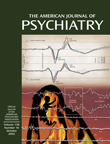For some books, time must catch up to their need. Others are enduring classics. This volume fits both descriptions. The treatment of posttraumatic stress disorder (PTSD) is not only important, but even more important at the present time. Although the book is primarily a scholarly review of effectiveness and efficacy studies, it is an important overview for the clinician who wishes to know more about the scientific basis for several treatment modalities. Some of these are in widespread use and of little value. Others are probably underused. The introductory chapters by the editors are classics. They warrant the publication of this book regardless of the rest of the volume. These chapters provide a scholarly and clinically sound description of the issues involved in creating an evidence-based approach to the treatment of PTSD as well as the problems of diagnosis and assessment. The editors are leaders in their field and bring the clinician as well as the scholar up-to-date through their presentations.
The editors appropriately address the importance of establishing a professional milieu in a trusting and safe relationship as well as the importance of the therapist’s awareness of the patient’s welfare as a priority in initiating treatment. These aspects of the therapeutic alliance are always fundamental to any psychotherapeutic undertaking. The continued availability of the therapist represents a fundamental backdrop for any successful treatment.
The volume presents the different treatment approaches and treatment guidelines for PTSD, including chapters on inpatient treatment, marital and family therapies, and psychosocial rehabilitation. Psychological debriefing is addressed thoughtfully, recognizing its substantial limitations, lack of empirical support, and strong clinical support. The role of psychological debriefing remains yet to be determined for early intervention following trauma exposure. As a minimum, however, it can be stated that it has not been empirically shown to be beneficial. In addressing the issues of debriefing, it will remain important to distinguish the contributions of debriefing to limiting disability and relieving pain from those of treatment of a psychiatric disorder. If a patient has broken his arm, we do not hesitate to provide a pain medication. Pain relief restores function and limits long-term disability. However, we do not confuse this with fixing the broken bone.
Cognitive behavior therapy is well reviewed and forms much of the basis for recognizing the importance of opportunities to discuss the specifics of the trauma in all psychotherapeutic treatments. Pharmacotherapy is also reviewed. The recent addition of selective serotonin reuptake inhibitors to the treatment of PTSD makes the importance of staying up-to-date in this treatment area all the more important. The issues of eye movement desensitization and reprocessing are critically reviewed. There continues to be an absence of data as well as no neurobiology to support the concept that eye movements themselves contribute to treatment recovery. As has been said before for eye movement desensitization and reprocessing, what is helpful in this treatment is not new.
The editors are very specific in recognizing that merely experiencing a trauma is not an indication for treatment in itself. Empirical studies of treatments often suffer in the area of generalizability because of the rigor required for double-blind empirical studies. Differential dropout rates are often of more concern to the practicing clinician than to the empirical scientist assessing efficacy of a treatment modality. Whether a treatment outcome is compared with the outcome of a wait list, a placebo, or another treatment modality also greatly affects the results of a study. At present, there are no studies that systematically examine combining psychotherapy with medication in the treatment of PTSD. Since this is an increasingly common form of treatment, it warrants systematic empirical study at an early date.
Further innovative treatments for PTSD are yet to be designed. In particular, the possibilities for prevention of PTSD through early intervention with psychosocial treatments, case management, pharmacotherapy, and fostering natural debriefing warrant ongoing empirical study. We can be sure the editors of this volume will continue to pursue these topics, as will the many authors who represent the leading edge of this field. This contribution of Foa, Keane, and Friedman is an important addition to both clinicians’ and researchers’ libraries.

